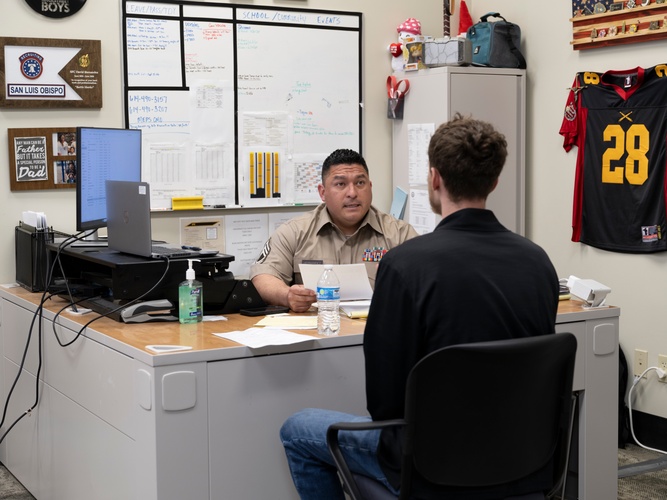The Complete Guide to Military Transition and Post-Military Life Planning
Disclaimer: The information in this article is for educational and entertainment purposes only and should not be considered professional financial advice. The authors are not certified financial advisors or fiduciaries, and readers should consult with qualified financial professionals before making any financial decisions.
I've watched countless service members struggle with their transition from military to civilian life, and it breaks my heart every time. Not because transition has to be difficult, but because most people wait until the last minute to start planning. The truth is, military transition planning should begin the moment you put on the uniform, not six months before you take it off.
Whether you're in your first term wondering about the future or approaching the end of your military career, this comprehensive guide will help you navigate the complex world of post military life planning. I've been there myself, and I've helped hundreds of veterans make this transition successfully.
The reality is that leaving the military is one of the biggest life changes you'll ever face. You're not just changing jobs – you're leaving behind an entire way of life, a community, and often the only career you've known as an adult. But with proper planning, this transition can be the beginning of an incredibly rewarding chapter in your life.
Why Early Planning Makes All the Difference
Here's something I wish someone had told me when I first enlisted: Why You Should Think About Transition Even in Your First Term. It might sound crazy to think about getting out when you're just getting started, but having a transition plan doesn't mean you're not committed to your service. It means you're smart.
The military teaches us to plan for contingencies, so why wouldn't we plan for life after service? Even if you're planning a 20-year career, circumstances change. Injuries happen. Family situations arise. Economic conditions shift. The service members who thrive after the military are those who've been thinking about and preparing for transition throughout their careers.
I've seen too many senior NCOs and officers who spent decades in the military suddenly realize they have no idea what they want to do next. Don't be that person. Start thinking about your interests, your strengths, and your post-military goals early in your career.

Maximizing Your Military Benefits and Programs
One of the biggest mistakes I see service members make is not fully utilizing the transition resources available to them. The military actually provides excellent preparation if you know how to use it. Learning How to Use TAP (Transition Assistance Program) to Your Advantage is crucial, but it's just the beginning.
TAP gets a bad rap because some people treat it like a box to check rather than a valuable resource. The program covers everything from resume writing to interview skills, and it connects you with resources you'll need as a veteran. But here's the thing – you get out of TAP what you put into it.
Beyond TAP, Understanding VA Benefits is absolutely essential. The VA offers incredible benefits that can support your transition and your long-term financial health. From healthcare to education benefits, from home loans to vocational rehabilitation, these benefits can be worth hundreds of thousands of dollars over your lifetime.
I've met veterans who didn't even know they were eligible for benefits, or who assumed the process was too complicated to bother with. Don't make that mistake. Start familiarizing yourself with VA benefits early, and begin the application process well before you separate.

Creating Your Post-Military Roadmap
Successful transition requires more than just knowing what benefits you're entitled to – it requires a clear vision of where you want to go. Building a 5-Year Plan: What Comes After You Leave Active Duty? is one of the most important exercises you can do for your future.
When I work with transitioning service members, I always ask them to think beyond just their first civilian job. Where do you want to be in five years? What kind of lifestyle do you want? What are your financial goals? Do you want to start a family, buy a house, or travel the world?
Your five-year plan should include specific, measurable goals. Maybe you want to earn a certain salary, complete a degree, or start your own business. Whatever your goals are, write them down and create a timeline for achieving them.
This planning process will help you make better decisions about everything from which civilian job to take to where you want to live. It'll also help you stay motivated during the inevitable challenges of transition.

Navigating the Civilian Job Market
Let's be honest – the civilian job market can be intimidating for military veterans. The hiring process is different, the workplace culture is different, and sometimes it feels like employers don't understand the value of military experience.
But here's what I've learned: there are plenty of Civilian Jobs That Value Military Experience. You just need to know where to look and how to present yourself. Veterans bring incredible value to civilian employers – leadership skills, the ability to work under pressure, strong work ethic, and experience managing complex operations.
The key is learning how to translate your military experience into language that civilian employers understand. How to Translate Your Military Skills Into Civilian Terms is crucial for your resume, your interviews, and your overall job search strategy.
Instead of saying you were a "squad leader responsible for the health and welfare of 12 soldiers," you might say you were a "team supervisor who managed a 12-person team, ensuring 100% compliance with safety protocols and maintaining team productivity under high-stress conditions."
See the difference? Same experience, but presented in a way that civilian employers can immediately understand and value.

Exploring Alternative Career Paths
Not everyone wants to jump straight into a corporate job after leaving the military. Some veterans are drawn to entrepreneurship, and Starting a Business After the Military: First Steps to Take can be an incredibly rewarding path.
Military veterans actually have a higher success rate as entrepreneurs than the general population. We're used to taking calculated risks, we understand the importance of planning and execution, and we're not afraid of hard work. Plus, there are numerous resources available specifically for veteran entrepreneurs.
If you're considering starting a business, begin by identifying a problem you can solve. What skills do you have that could benefit others? What gaps do you see in the market? Start small, test your ideas, and don't be afraid to pivot if something isn't working.
Another path many veterans consider is using their education benefits to learn a trade. The debate over Using the GI Bill to Learn a Trade vs. Get a Degree is very personal, and the right answer depends on your goals, your interests, and your financial situation.
Both paths have their advantages. A four-year degree opens doors to certain careers and generally leads to higher lifetime earnings. But skilled trades are in high demand, often pay very well, and can provide a clear path to self-employment.
The beautiful thing about the GI Bill is that it gives you options. You can use it for a traditional four-year degree, for vocational training, or even for entrepreneurship programs. The key is choosing the path that aligns with your long-term goals.

Making Smart Geographic Decisions
Where you live after the military can have a huge impact on your quality of life, your career prospects, and your financial health. Researching the Best States for Veterans to Live In (Taxes, Benefits, Opportunities) should be part of your transition planning.
Some states offer significant tax advantages for military retirees. Others have strong veteran support networks or thriving job markets for former military members. Still others offer great quality of life at a reasonable cost of living.
Consider factors like state income tax, property taxes, cost of living, job market, climate, and proximity to family and friends. Also think about VA healthcare access and the overall veteran community in the area.
For some veterans, the best choice is How to Move Back Home Without Losing Your Independence. Moving back to your hometown can provide family support and familiar surroundings, but it can also feel like you're moving backward. The key is approaching it strategically and maintaining your autonomy.

Building Your Financial Foundation
Throughout all of this planning, don't forget about your long-term financial health. The military provides incredible opportunities to build wealth, but only if you take advantage of them. Max out your TSP contributions, especially if you're under the Blended Retirement System. Use your deployment savings wisely. Build an emergency fund.
Your military to civilian transition is also a great time to reassess your financial goals and strategies. Will your civilian job offer a 401(k) match? Should you roll over your TSP to an IRA? How will your insurance needs change?
These decisions can have long-term consequences for your financial security, so don't rush into them. Take time to educate yourself, and consider working with a financial advisor who understands military benefits and veteran issues.

The Bottom Line
Military transition planning isn't just about finding your next job – it's about setting yourself up for long-term success and fulfillment. The veterans who struggle with transition are usually those who waited until the last minute to start planning or who didn't take advantage of the resources available to them.
But the veterans who thrive are those who approached transition strategically, with clear goals and a solid plan. They started early, used their benefits wisely, and weren't afraid to ask for help when they needed it.
Your military service has prepared you for this transition better than you might realize. You've learned to adapt to new situations, to lead others, and to accomplish missions under pressure. These skills will serve you well in civilian life.
The key is to approach your transition with the same level of planning and preparation that you brought to your military service. Start early, use your resources, and don't be afraid to adjust your plan as circumstances change.
Remember, transition isn't the end of your story – it's the beginning of a new chapter. With proper planning and preparation, it can be the best chapter yet.
Ready to take control of your financial future as you plan your transition? VetraFi is here to support service members and veterans with banking solutions designed specifically for military life. Explore our resources and discover how we can help you build the financial foundation you need for a successful transition to civilian life.



.jpg)


